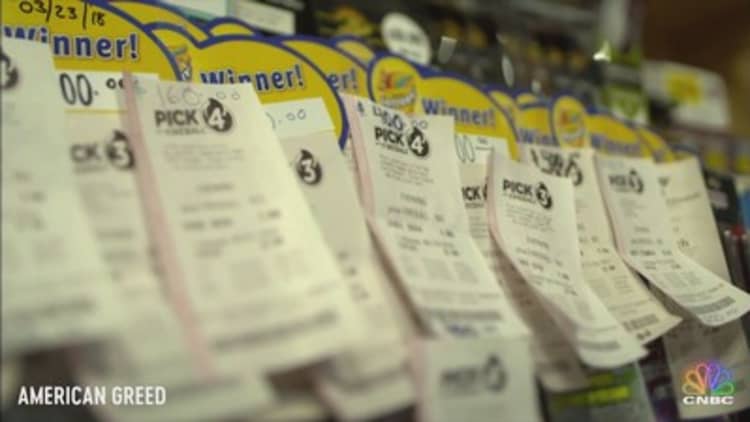With the odds stacked against players hitting the Powerball jackpot, the only guaranteed eventual winner is Uncle Sam.
The top prize has now jumped to $414 million, following no jackpot winner in Wednesday night's drawing. The amount has been growing for more than two months of twice-weekly drawings with no one nabbing the jackpot. Your chance of matching all winning numbers is about 1 in 292 million.
The IRS already has had a bonanza week: The person holding the Oct. 23 winning ticket for the $1.5 billion Mega Millions jackpot anonymously claimed the prize on Monday.
Based on the federal tax withholding of 24 percent, the IRS gets more than $210 million right off the bat of the $877.8 million cash option that the winner chose (instead of an annuity). The state of South Carolina, where the ticket was sold, gets its own $61 million in taxes.
Separately, the winner for last Friday's $273 million Mega Millions jackpot has come forward. Michael J. Weirsky, 54, of Alpha, New Jersey, is expected to officially claim his winnings Thursday afternoon.
And, of course, someone eventually will win the Powerball jackpot again, as well. Whether the person takes their loot as an annuity spread out over three decades or chooses the reduced lump-sum amount, the IRS will be waiting in the wings for its share.

While lottery officials are required to withhold 24 percent for federal taxes, the top marginal tax rate of 37 percent means the winner would owe a lot more.
"I see the withholding as a good thing," said Cari Weston, a CPA and director of tax practice and ethics for the American Institute of CPAs. "When people come into a lot of money all at once, the last thing they're thinking about is their taxes."
For this $414 million Powerball jackpot, the cash option — which most winners go with — is $247.9 million. The 24 percent federal withholding would reduce that amount by $59.5 million.
Assuming the winner had no reduction to their taxable income — large charitable contributions made from the winnings, for example — another 13 percent, or $32.2 million, would be due to the IRS ($91.7 million in all).
That would leave the winner with $156.2 million before state taxes. That levy ranges from zero to more than 8 percent, depending on where the ticket was purchased and where the winner lives.
In other words, federal and state taxes combined could eat up more than 45 percent of winnings.
More from Personal Finance:
Employers are hiring, but don't expect a bigger paycheck
Your $50,000 annual income goes further in these cities
Retiring past age 65? Avoid costly Medicare mistakes


